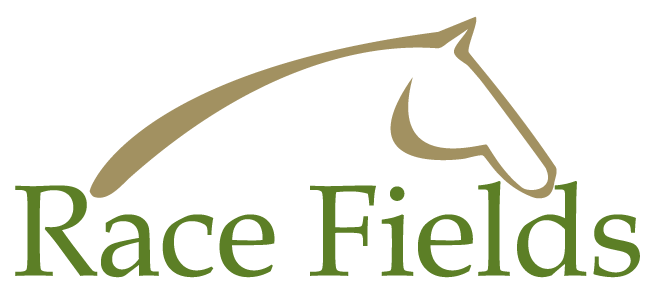Speculation around the 2016 service fee for new boom sire Tavistock has finally ended.

In an exclusive announcement to The Informant, Sir Patrick Hogan has revealed that the rising 11-year-old will stand at a fee of $65,000 in his seventh breeding season at Cambridge Stud.
“It’s been a very difficult exercise in arriving at a fee that reflects the tremendous success of his first two crops as well as being fair to broodmare owners,” Sir Patrick said. “Mind you, that’s second only to the other side of the equation, sorting through the hundreds of service applications and deciding who’s in and who’s not.”
The rise of Tavistock from a stallion commanding a fee of $7,000 just two years ago to now be second only to Waikato Stud’s headline act Savabeel amongst New Zealand stallions has been nothing short of extraordinary.
When he retired to Cambridge Stud as a dual Group One winner in 2010, the son of Montjeu covered 127 mares a fee of $12,500. His 2011 book at the same fee numbered 94 and he covered 82 mares in his third season at $10,000. A further reduction to $8,000 attracted 105 mares and he was set to cover a similar number at $7,000 in 2014.
That was off the back of his first crop daughter Avisto winning the Listed Great Northern Foal Stakes at Ellerslie as an autumn two-year-old and she took that form into the spring with a stakes win at Wanganui. The turning point for Tavistock, however, was one weekend in September when Avisto completed a black-type hat-trick in the Listed Soliloquy Stakes and in the very next race at Ellerslie Tavistock gelding Volkstok’n’barrell backed up from a maiden win to add the Gr. 3 Bonecrusher Stakes. Throw in a Gloaming Stakes placing by Diamond Valores at Rosehill the same day, and Tavistock was suddenly the bargain of the season.
By the completion of breeding activities that December, Tavistock had covered 197 mares and those breeders with mares in foal to him sat back and watched as the feature wins mounted. Volkstok’n’barrell added the Gr. 2 Great Northern Guineas and Listed Karaka Mile before being placed in the Avondale Guineas and New Zealand Derby, then exacting revenge on his arch rival Mongolian Khan in the Gr. 1 Rosehill Guineas.
Fellow Tavistock gelding Werther emerged late in the season to win the Gr. 2 Championship Stakes at Ellerslie and in a three-race Australian campaign finished second in the South Australian and Queensland Derby and between the two classics won the Gr. 2 Eagle Farm Cup. A third gelding from Tavistock’s first crop, a leggy bay by the alluring name of Hasselhoof, got tongues wagging with a brace of runaway wins coming through the grades and as a summer four-year-old he won the Gr. 2 Rich Hill Mile in his open company debut.
The achievements of Tavistock’s progeny had inevitably prompted a rise in service fee and he covered his largest ever book of 211 mares last spring at a fee of $15,000. The young stallion’s second crop had by then entered the fray, led by Victoria Derby winner Tarzino and added to in the second half of the current season by Tavago, the winner of the Gr. 3 Wellington Stakes late last year before bouncing back to claim the Australian Derby.
By now Australian breeders were convinced that Tavistock was the real deal and if further evidence was needed for an even wider audience, it came when Werther – sold last year to clients of Hong Kong trainer John Moore – won the Hong Kong Derby and then became just the fourth horse to back up successfully in the Queen Elizabeth ll Cup at Sha Tin.
That final act was just last Sunday, in the middle of which Sir Patrick Hogan was working through the pile of service applications deciding which mares would be offered their chance at the available nominations.
“We had more than 280 applications before last weekend and when Werther won again we had another bunch come in,” Hogan said earlier this week. “The problem is that by the time you add up Cambridge Stud’s service rights, share-holder mares and the pre-emptive right of share-holders to send further mares, there are only 60 to 70 outside nominations.
“It really is a dilemma and I find myself in an impossible position trying to satisfy everyone. Those whose applications are successful will no doubt be pleased, but there will be a whole lot of other broodmare owners who will miss out.”
The pile of applications included around 50 from Australian breeders and some 45 mares by Zabeel, who features in the pedigrees of more than half of Tavistock’s major winners (see page 27).
Having stood champion stallions Sir Tristram and Zabeel in Cambridge Stud’s 40-year history, Hogan is familiar with the brinkmanship required in both selecting a stallion’s final book and setting a service fee. On the latter point, however, the current scenario around Tavistock is unique.
“To have left such a list of big winners in such a short time sets Tavistock apart,” says Hogan. “It didn’t happen quite like that with Sir Tristram and Zabeel, it was more gradual, but for a stallion’s fee to make such a dramatic rise in the space of two years is something I’ve never seen before.”
In setting Tavistock’s 2016 fee at $65,000, which is exclusive of GST and includes a life foal guarantee, Hogan believes he is being both realistic and fair.
“I’m absolutely comfortable in my belief that he belongs at that level,” he said. “The way his progeny are developing and performing there’s clearly another leap to take in the future, but as things stand now I believe we’ve got it right.”
 InglisDigitalAUS
InglisDigitalAUS InglisDigitalUSA
InglisDigitalUSA







